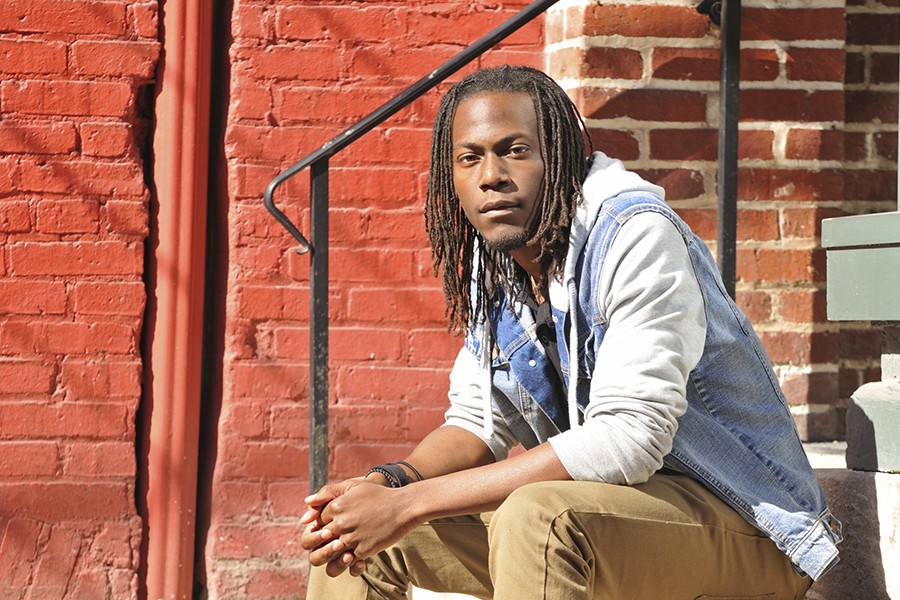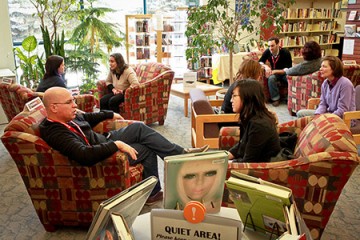What if there were a platform similar to NPR's StoryCorps to give locals a voice about the health-related challenges in their community? And what if, instead of sitting in a vault, those stories could actually help inspire tangible solutions?
That's the general concept behind a new campaign by the nonprofit Medical and Educational Perspectives, which nabbed a $20,000 Ten by Twenty grant through Johns Hopkins' inaugural Idea Lab crowdsourcing competition, held in the spring.
Over the summer, the MEP Campaign for Progress began collecting health-related personal stories, through videos, audio recordings, and writings, from Maryland residents facing problems that might warrant a clinical or technological approach. One inspiration, says MEP's founder and president, MD/PhD student Carmen Kut, is a StoryCorps episode she heard about a young man's daily struggles with cystic fibrosis.
The campaign is currently accepting submissions online through Oct. 15, and the stories have already started rolling in. One local Baltimore man, for example, speaks of his mental health issues and subsequent problems finding a job. In another story, a woman candidly describes a negative experience in an emergency room. In addition to audio recordings, the team is accepting text submissions of up to 500 words.
From these stories, MEP will identify five top health challenges on which to focus. "The ones we'll select are ideas which are well-articulated and affect a large population," says MEP leader John Hickey, a School of Medicine PhD candidate in Biomedical Engineering. The top ideas are eligible for up to $200 this fall.
Then, for each challenge, a multidisciplinary team—drawn from different departments across the university and with at least one non-Hopkins community member participating—will work on a specific solution. The format is open-ended, so the solution might be a medical device, a smartphone app, or a simple procedural change, says MEP leader Margaret Chow, also a BME doctoral candidate in the School of Medicine.
At the end, sometime next spring, the teams garnering the most votes in a public forum will receive up to $5,000 for implementation of their solution; other teams may also get funding.
Throughout the process, MEP will provide workshops and mentorship opportunities. "We're preparing [the teams] through all the stages, helping them understand the problem and how to present it to the public," says Hickey. Ultimately, the test will be "how well they're able to engage the public," he says.
The campaign is an outgrowth of the yearlong program MEP already hosts, a part of which involves an elective course with students pitching their medical solutions to a panel of health care and industry experts.
Since Kut founded MEP in 2004, when she was a freshman at Johns Hopkins, the group has evolved in a number of ways.
Initially, MEP was launched to bring together teams of undergrads from Johns Hopkins and other institutions to travel abroad for health education programs in at-need communities, with summer trips to China, India, and Tanzania. A few years after MEP became a formal nonprofit in 2008, the group transitioned to include master's and doctoral students from different departments at Hopkins, and the focus has shifted to medical technology, particularly the development of affordable medical devices.
Now with more than 300 members, MEP offers through the medical school two elective courses a year focused on medical innovations and entrepreneurship. Its annual competitions have helped train and/or fund 25 teams since 2011, including the Cooling Cure and PathoVax teams.
The university's Idea Lab challenge offered MEP a chance to significantly expand its program locally. "[It] has given us the precious opportunity and funding … to work together toward making a difference in Baltimore," Kut says.
More information on the ongoing campaign is available at mepjhu.tumblr.com or by emailing mepjhu@gmail.com.











